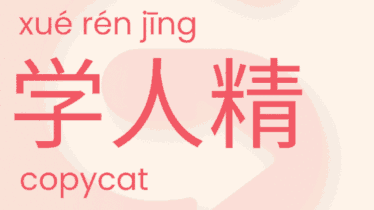Bagaimana untuk mengatakan selamat pagi (dan petang, petang) dalam bahasa Cina
Here are several answers to the question ‘How to say good morning in Chinese’. Click here for more greetings in Chinese.
Good morning in Chinese is like in English
In English or other European languages, “Good morning!” is often said as a whole but sometimes also simply as “Morning!”. Chinese is no different.
The full phrase is:
- 早上好
- zǎo shàng hǎo
But you can also say:
- 早
- zǎo
A third variation is
- 早安
- zǎo ān
Listen to Chinese Greetings Online:
The “安ān” here stands for ‘good’, even though in other contexts (such as 安静Ānjìng) it means calms.
The most formal way is “早上好”, whereas the most colloquial way is for sure a loud “早!”.
You can say this until 10:00 (10 a.m.), this is also different than in some European countries, where there’s no 上午shàngwǔ concept (forenoon), and you could just use 早上好 until 11:59 in the morning.
In text messaging, you can also send 猫宁Māo níng because it sounds like “Morning” in English. Young people will understand this.
Click here to get a quick guide with text and audio.
In this quick guide, we cover greetings, numbers, time, colors and more in Chinese. Take it as your companion as you explore the Chinese language.
Good evening and good afternoon in Chinese
In addition to greeting good morning, there’s:
- 上午好 shàngwǔ hǎo (Good forenoon)
- 下午好 xiàwǔ hǎo or 午安 wǔ ān (Good afternoon)
- 傍晚好 bàngwǎn hǎo (Good evening)
- 晚上好 wǎnshàng hǎo (Good night)
Good Evening and Good Night in Chinese
The most common way to say “Good evening” and “Good Night” in Chinese is:
晚上好 (wǎn shàng hǎo)
Breaking it down, 晚上 (wǎn shàng) means “evening” or “night,” and 好 (hǎo) translates to “good.”
When combined, 晚上好 (wǎn shàng hǎo) conveys a polite and formal greeting for the evening. This phrase can be used in various settings, such as when meeting someone in person or during a phone conversation.
For a more casual or colloquial expression, you can use:
晚安 (wǎn ān)
Here, 晚 (wǎn) means “evening” or “night,”
while 安 (ān) can be translated as “peace” or “calm.”
Together, 晚安 (wǎn ān) conveys the sentiment of “Goodnight” rather than just “Good evening.”
This phrase is commonly used when bidding farewell or wishing someone a restful night’s sleep.
It’s worth noting that the usage of 晚安 (wǎn ān) is more common in informal or casual contexts, such as among friends or family members. In more formal situations, it is more appropriate to use 晚上好 (wǎn shàng hǎo).
Similar to the example with “Good morning,” the timing for using these greetings can vary. You can start using 晚上好 (wǎn shàng hǎo) or 晚安 (wǎn ān) from the late afternoon and continue until around 10 p.m.
After that, it becomes more customary to switch to other phrases, such as “Goodnight” (晚安 – wǎn ān) or specific phrases for parting.
Good Afternoon in Chinese
The most common way to say “Good afternoon” in Chinese is:
下午好 (xiàwǔ hǎo)
Let’s break it down into simpler terms. 下午 (xiàwǔ) means “afternoon,” and 好 (hǎo) means “good.”
When we combine them, 下午好 (xiàwǔ hǎo) becomes a polite and friendly way to greet someone during the afternoon. You can use this phrase when meeting someone face-to-face or talking to them over the phone.
If you prefer a more casual and informal way to say “Good afternoon,” you can use:
午安 (wǔ ān)
Here, 午 (wǔ) means “noon” or “midday,” and 安 (ān) conveys a sense of “peace” or “tranquility.”
Together, 午安 (wǔ ān) expresses the wish for a peaceful and pleasant afternoon. This phrase is commonly used among friends, family members, or in casual settings.
Remember that the usage of 午安 (wǔ ān) is more relaxed, while 下午好 (xiàwǔ hǎo) is considered more appropriate in formal or professional situations.
You can start using 下午好 (xiàwǔ hǎo) or 午安 (wǔ ān) from around 12 p.m. until late afternoon, typically before sunset.
Read More – GoEast’s Resources on Greetings in Chinese
- Greeting in Chinese Post 1: Basic Greetings and Self-Introduction in Chinese
- Greeting in Chinese Post 2: Chinese Greetings for Chinese New Year
- Greeting in Chinese Post 3: How to say hello in Mandarin
- Greeting in Chinese Post 4: How to Write a Formal Letter in Chinese – Formats, Greetings, Closings, and Examples
- Video 1 (Beyond Class): How do Chinese people greet each other during the Chinese New Year
- Video 2 (Beginner Chinese): Beginner Chinese EP5 : How to Greet in Chinese
- Video 3 (Business Chinese): Business Chinese – Words to Greet People
Begin Your Mandarin Journey with Our Exclusive Free Trial Class!
- +10.000 satisfied Chinese language students and proud parents.
- Sesi onboarding terlebih dahulu
- 50 minit, jadual bila-bila masa yang anda suka
- Hanya kau dan guru, tidak ada teman sekelas
- Cuba kelas langsung kami
- Dapatkan laporan maklum balas selepas itu
Regional Dialect Differences in Regard to Good Morning in Chinese
While Mandarin has some base greetings, dialects can vary slightly. For example, in Cantonese, good morning is “jo2 san4 ho2” compared to Mandarin. But most Chinese will understand if you use the common Mandarin greetings.
Replying to Greetings
When greeted, it is polite to return the greeting. For example, you would reply “早上好” (zǎoshang hǎo) after someone says “good morning” to you. You can also elaborate, like “早上好, 今天天气不错” (good morning, the weather is nice today).
Proper Greeting Etiquette
Greetings in China can be influenced by factors like societal position and age. For example, it is custom for younger people to greet elders first. Greetings are also viewed as establishing mutual respect.
Try it! Good luck!
Suggest Reading: How long does it take to learn Mandarin Chinese
+10.000 satisfied Chinese language students and proud parents.
Click to Onboard a free trial class!
Frequently Asked Questions
How do you say “Good morning” in Chinese?
To say “Good morning” in Chinese, you can use the phrase 早上好 (zǎo shàng hǎo).
What is the translation for “Good afternoon” in Chinese?
The translation for “Good afternoon” in Chinese is 下午好 (xià wǔ hǎo).
How do you greet someone with “Good evening” in Chinese?
To greet someone with “Good evening” in Chinese, you can say 晚上好 (wǎn shàng hǎo).
How do you say”Good night”in Chinese?
The Chinese equivalent for “Good night” is 晚安 (wǎn ān).





